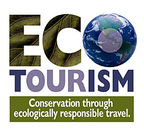 click to learn more If any of you have been following my blog you know that one of the main reasons for starting it, was because it was a requirement for the international tourism course that I took this semester. Well I would just like to use this post to talk about what I have learned and my personal reflections about the course as it draws to an end.
My blog has been primarily about preserving and helping the Great Barrier Reef and all its components. I have learned so much about this wonderful ecosystem and how we can hurt or help it. which is why i would like to mention eco-tourism. With an ecosystem that is such a popular tourist attraction, such as the Great Barrier Reef, eco-tourism is very important. Without eco-tourism and eco-friendly tourist, the reef would be vastly different. So if there is one main point that I have learned or would like others to learn while reading my blog, it would be that being an eco-tourist is so important when visiting other places, and that is not limited to just the Great barrier Reef but everywhere we travel. I encourage you to visit http://www.ecotourism.org.au/ for more information about ecotourism.
I have learned so many things that I didn't anticipate by taking this course. I have learned a lot from my fellow classmates, who have each done different subjects in regards to tourism. I have been able to see different issues and perspectives of peers as well as others from around the world as I have read blogs, visited websites, posted on Pinterest and many other ways of becoming more aware of the world around me.
The international tourism course required a lot of writing skills. One thing that struck me was that information that we post on the internet is out there for the whole world to see. I am not just talking about spelling and grammar here either, I need to make sure my facts are straight, because, depending on the audience, it may be used for reports, essays and other things. I realized how important quoting sources, providing links, and checking facts can be.
I learned that it is also important to choose your audience. Certain writing skills that I portrayed could attract different audiences and therefore change the outcome that i wished to accomplish. Again, this is an important skill to utilize because my information is out there for the whole world to see. It is something I feel that I have been able to apply to my writing, in other classes as well.
I look back with humor on the fact that one of the reasons that I have never had a blog or a pinterest or other forms of social media, was because I thought of them as too mainstream and cliche. I realize now that they are such great tools to aid in spreading information, and really globalizing it, as the internet does, the information that i want to portray. I learned just how powerful these tools can be to help spread a message.
Even though the intent of taking this class was to just fill a general education requirement, I learned more than i could ever hope for and it was a class that was really fascinating and fun to take. I really enjoyed taking the international tourism course
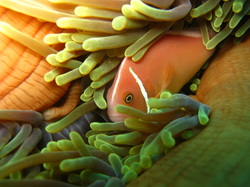 The marine tourism industry is a major contributor to the local and Australian economy generating over $4.228 billion per annum in 2003. It is the largest commercial activity in the Great Barrier Reef region.
Well, there is a great little company in Cairns, Australia, that is doing there part to help those visiting learn more about the reef. I found this company while browsing tripadvisor.com. it was rated as the third best and most popular activity to do while visiting the reef. It is called Reef Teach, and it is has been educating visitors since 1992.
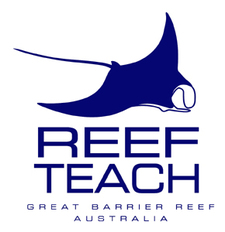 You can find information at their website, located at http://www.reefteach.com.au/
click on the image to go there.
They are a really neat tourism attraction, and they utilize the 5 cornerstones of fair trade, even though their program and efforts can seem rather small.
The 5 cornerstones of fair trade are; fair working conditions, fair prices, integration Into the local economy and regional development, fair trade partnerships between all actors in tours, and sustainable resource use and environmental justice.
I will be outline how the company Reef Teach falls into each of these catagories.
- Fair Working Conditions: Reef Teach employs experienced divers and can give you tips on good diving and snorkeling practices, choosing a reef trip to suit your needs, and even how to take a good photograph underwater so that you can cherish your Barrier Reef moments for a lifetime.
- Fair Prices: Reef teach offers very reasonable prices. it is $18 per adult for a two to three hour class. If you have a family of 4 people then it is only $45. But really, can you put a price on education? They do not raise their prices during peak tourism seasons. And they offer their classes to anyone who wants to take them. You can even rent their entire classroom for a group.
- Integration Into the Local Economy and Regional Development: Reef Teach was set up in 1992 by Paddy Colwell, who was working on Cairns dive boats briefing visitors about the Great Barrier Reef. Realizing that people were interested in finding out more than he could get across in 15 minutes, he decided to set up a land-based show in the evenings so that people could learn more about the reef. Paddy ran Reef Teach for 14 years before retiring in 2007. Reef teach has a gift shop, which ensures that money stays in the city of Cairns.
- Fair Trade Partnerships Between All Actors in Tourism: Reef teach simply teaches about the reef. Yes, they have hands on exhibits, such as coral you can touch as well as fish that you can look at and touch. But Reef Teach doesn't take you out to the reef. I think Reef teach is intended to be one stop on a long list of destinations to visit while in Cairns or the Barrier Reef in general. Reef teach also is in close partnership with Digital Diver, an underwater photography business. The presenters are knowledgeable biologists and conservationists who can help you learn what to look for, where to look, and how to discover as much as possible
- Sustainable Resource Use and Environmental Justice: Reef Teach has a very low resource use. unlike a hotel or a cruise liner, which uses manpower and natural resources such as electricity and fuel, Reef Teach uses a small teaching facility and focuses on teaching people about the reef. Really, Reef Teach's largest impact on environmental justice is the fact of how they influence reef visitors about how they can care for the reef, including good practices when it comes to diving, photographing, snorkeling, and even what they can do in their hotel rooms to cut their impact on the reef. The instructors can also explain how to minimize your impact on the reef and what to do to help protect our reefs, fish, turtles and other marine wildlife
Sources :http://www.greatbarrierreef.org/tourism_overview.php
http://www.tripadvisor.com.au/Attractions-g255069-Activities-c25-Cairns_Cairns_Region_Queensland.html
http://www.reefteach.com.au/about/about-reef-teach/
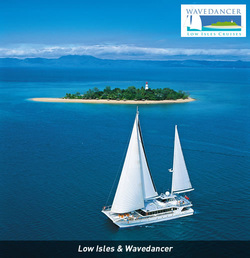 One of the most negative effects on the Great barrier reef is the impact of tourism. So how can we see this beautiful natural place without damaging it? The answer is traveling using companies that are eco certified. Ecotourism is a form of tourism involving visiting fragile, pristine, and relatively undisturbed natural areas, intended as a low-impact and often small scale alternative to standard mass tourism. One of these companies is Quicksilver tours and cruises. I found this company online while searching for eco-friendly travel options. Quicksilver is Eco Certified, and recognized for "advanced ecotourism" – the highest eco certification attainable in Australia. Part of being eco certified means rather strenuous efforts to preserve the endangered and fragile Reef. On their website they provide some points as to how they preserve the Reef. - A rigorous assessment process including referees (one of whom must be a protected area manager)
- Review and updating of criteria every three years to reflect emerging best practice
- Feedback from customers of accredited operators
- Audits of operators, including an on-site audit on the entire set of the Eco Certification Program criteria at some stage during the period of accreditation.
As you can see by the points that they outline it takes great effort to be eco-friendly. They offer some very fun activities which include snorkeling, scuba diving, sailing on their eco-friendly sail ships, cruises, and various other reef visiting activities. They have achieved many awards from the country of Australia, including the Queensland hall of fame for tourism ( two times), and voted Australia's best tour operator.
One of quicksilvers motto's is "At Quicksilver, we would like all of our guests to leave us as ambassadors of reef protection and preservation."
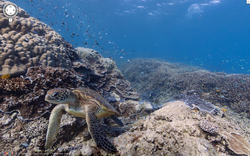 A cool fact that I found as recent news on the Great Barrier Reef. Google Earth has now started taking panoramic pictures underwater of the Great Barrier Reef. Its almost like you have been given a free vacation.
Recently Google has gone to extensive effort to expand the street view of their google earth program. Part of that means going underwater to photograph and film parts of the ocean. It is not only a great idea but also a great learning tool.
Now people around the world can become familiar with one of the most beautiful places on the planet. Most movies and documentaries portray, only the most beautiful parts of the Reef, but now people can have a more palpable portrayal of what the Reef actually is.
Click on the Image to see the article directly from google.
 My Name is Bryson Balling, editor-in-chief of this webpage/blog. I have had absolutely no blog experience, so bear with me as this is my first website and my first blog. It will be a new interesting experience and I hope you enjoy the ride along with me.
For more background information about my life, please click the "about the author" link on the page. Just to say a few words about this blog and webpage, one of the main purposes of this webpage is to help me learn. you can learn along with me if you like, and I hope you do. I will discuss things about the Great Barrier Reef. It is a very interesting subject to me.
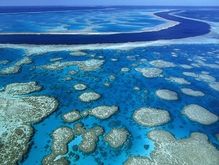 When you think of the ocean, you think of sea turtles, exotic fish, sandy beaches, sharks, and yes, the Great Barrier Reef. The Great Barrier reef is the worlds largest Coral network, roughly the size of California. That's huge!
In this blog page, I am going to specifically discuss the Great Barrier reef and many aspects of it. I hope that I can help inform those seeking knowledge about the Reef, by providing sources and information. I am also learning every day about the Reef, and I hope I can accurately portray the facts as well as my personal interest in it.
The Great Barrier Reef is a huge tourist attraction, and as many people have come to realize, it is a threatened ecosystem. Many people go to visit the Reef each year, but what is being done to preserve it? What can you do to help save it? What can I do?
The great barrier reef is located half a world away from me, so it is hard for me and many of those reading this, to travel there to do something. One of the reasons for creating this blog is to inform people. Thereby trying to do my part to save this awesome part of this world.
|




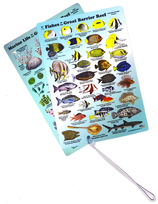




 RSS Feed
RSS Feed